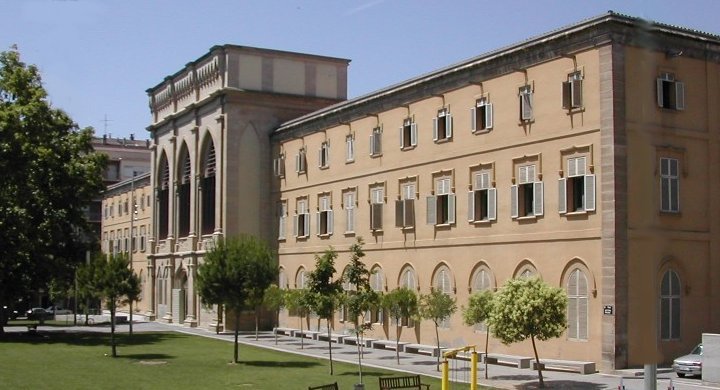Family Hosting of Mobility Students for Language Exchange
Descarregar pdfPrinciples of the project
The project is based on language and cultural exchange between students who come to the University of Lleida on mobility programmes (Erasmus programme and similar) and the families who want to host these students. Both sides can benefit from this: students wanting to take part in this pilot project, run by the language hosting department of the UdL Language Institute, will be able to stay for free or in exchange for a symbolic price in a family's home. The family will provide all the facilities possible so that the student feels part of the family and will provide them with a bedroom and bathroom (the latter may be shared or private) as well as board or access to the kitchen. The family will undertake to help the student with everything they need, especially during the first few days in the city and in any event of an emergency (taking them to the doctor, emergencies, etc.). In return, families taking part in the pilot project will receive a language exchange by the student. The student will undertake to spend a number of hours, agreed previously with the family, when they will teach their mother tongue, or any languages for which they can accredit a high level, to the family or to a family member (normally children). The language exchange will preferably be done through play (stories, trips to the park, playing sports together, board games, etc.). The language exchange must be of good quality, and the possibility is envisaged of the student preparing an activity or game to put the language they are teaching into practice.
Basically, the aim of the pilot project is, on the one hand, to provide a service that is beginning to be called for, i.e. coordination of mobility student visits (Erasmus programme and similar) who want to stay with families in exchange for this language exchange, and, on the other hand, and the main reason behind the decision to run the project, is to conduct a study through the Master's Thesis in Applied Languages of the University of Lleida, from which information can be taken with regard to intercultural communication and the vision of multiculturalism. The gathering of data will principally be extracted from the interviews scheduled during the stays, which will be conducted periodically both with the host families and with the exchange students.
All families that meet the requirements may take part in the project (please see below for all the documentation that has to be completed). Both families and students should be aware that this is a new project with no precedents and which we are hoping will be a success. The possibility is also envisaged of conducting it on future occasions or of informing other universities for them to put it in place.
We will try to meet the preferences of both applicant families and students, but under no circumstances can we guarantee 100% that all the preferences requested can be met. Both the family and the student will be able to withdraw if they think that sharing the home may prove to be unsatisfactory. You can consult the Action Protocol below.
To find out the preferences of both families and students, applicants must complete a series of questionnaires that ask for specific information. Depending on the results obtained, a family will be chosen for each student. We will try to match both sides' requests as far as possible.
Action Protocol
In order to provide support to the language and cultural hosting by both families and students taking part in the pilot project, a series of protocols are envisaged so that nothing is left to chance.
Host families
1. What should be done if the family does not adapt or if sharing does not work out?
First, we will try to find viable solutions, and if one of the two sides does not think that it can be solved, another student will be found, providing there is one available. The new student may not meet all the characteristics that the family asked for in the questionnaire.
2. What should be done if there are more families interested than students?
-
We will try to provide a solution to the families who have asked to be part of the project by order of registration.
-
A second criterion will be to use the matching preferences of families and students as the basis.
-
The possibility is also envisaged that the families are kept on a reserve list.
3. What will happen if the family does not fulfil the conditions agreed beforehand?
The exchange may be ended if the conditions established beforehand are not fulfilled.
Mobility students
1. What should be done if the student does not adapt or if sharing does not work out?
First, we will try to find viable solutions, and if one of the two sides does not think that it can be solved, another family will be found, in this case, one of the families on the reserve list. The new family may not meet all of the characteristics that the student initially chose in the questionnaire.
2. What should be done if there are more students than families interested in the project?
-
We will try to find a family that meets the student's needs.
-
If there is no family at that time, the student will be placed on a waiting list. In the meantime, they will have to find an alternative, be this a shared or individual flat, etc.
3. What will happen if the student does not fulfil the conditions agreed beforehand?
The exchange may be ended if the conditions established beforehand are not fulfilled.
Timescale
The stay by mobility students with the host families will run from January to June 2016.
Deadline for applications
Host families can submit all the necessary documentation until 15 January 2016.
Necessary documentation
The questionnaire must be completed. The completed and signed application should be submitted to the Language Institute.
Should you have any queries, please contact the Language Institute.
CONTACT
Tel. + 34 973 00 35 43
dinamitzacio.il@udl.cat
Contact times: Monday to Friday, 8 am to 2.30 pm, and Tuesday from 3 to 5 pm


